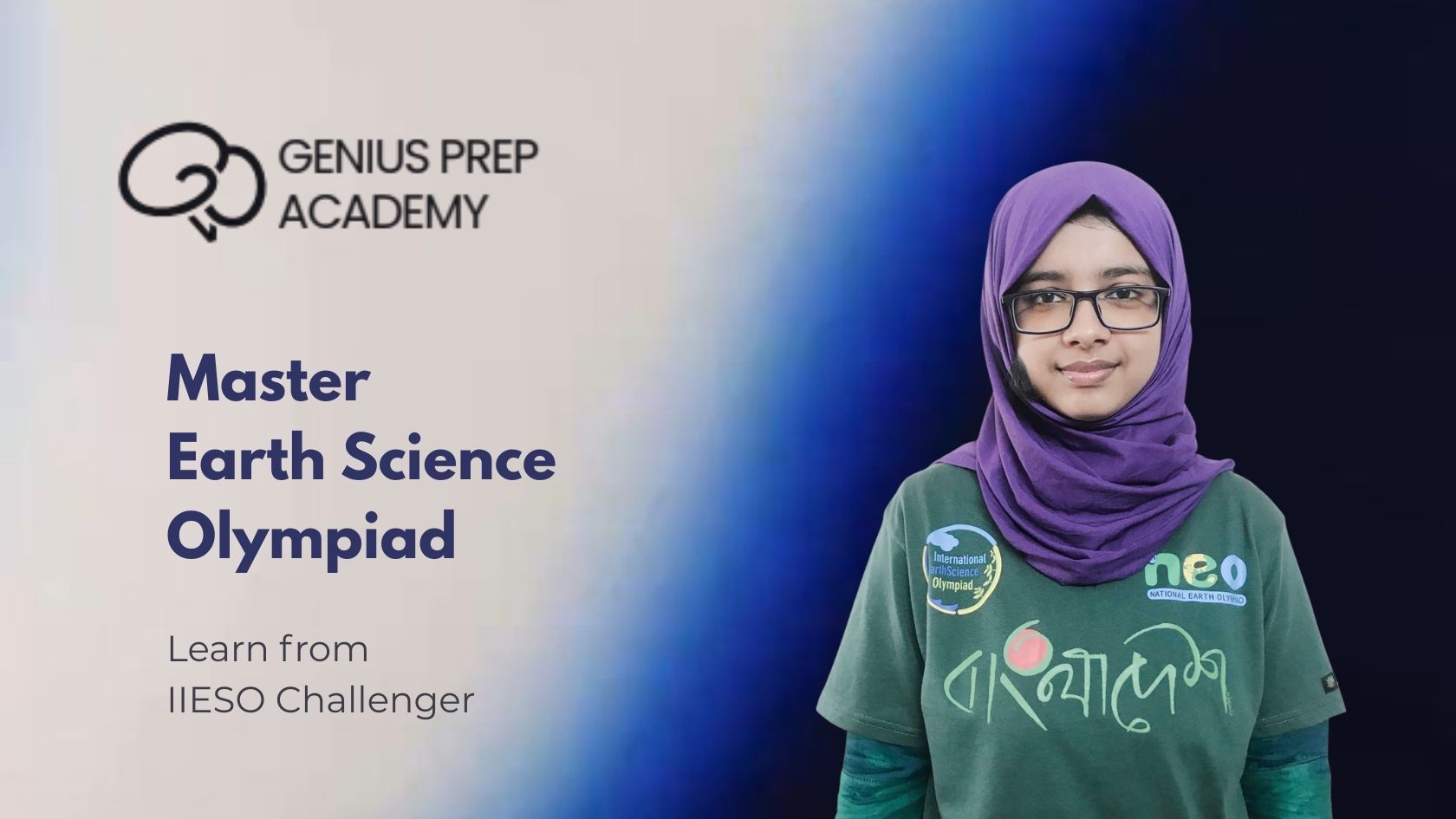
Earth
Olympiad
Discover Earth: Hands-on problem-solving in Geology, Meteorology, and Ocean Science
Click to Enroll
Start Now!
Classes
12
Total hours
20–30
Level
Beginner → Advanced
End result
Contest-ready
Hi! I’m Faiza Islam
I began NEO in 2019 and struggled for years before breaking through, eventually ranking Top 10 nationally (9th) and earning selection to Team Bangladesh for IESO. That journey taught me the most important lesson: persistence beats talent.
I’m currently pursuing a BBA at the University of Dhaka, but my heart still belongs to Earth, rocks, clouds, rivers, and deserts. I teach with warmth, clarity, and steady belief in your progress. If you keep showing up, I’ll meet you there, step by step.
What You'll Learn
- Geology: You will explore minerals, rocks, geological structures, maps, cross-sections, and geologic time. For example, you might identify rock types in the field or interpret a geologic map to reconstruct Earth’s history.
- Meteorology and Climate: You will study fronts, stability, remote sensing, and climate logic. For instance, you could predict weather changes from a synoptic map or analyze satellite images to understand storm patterns.
- Oceanography and Hydrology: You will learn about currents, salinity, coasts, and watersheds. For example, you might calculate how a river distributes sediments or understand why certain coastal areas are more prone to erosion.
- Planetary Links: You will explore seasons and Earth–Moon–Sun geometry. For instance, you could explain why solstices occur or calculate the length of daylight at different latitudes.
- NEO and IESO Prep: You will practice DMT tasks, ESP teamwork, and field-style notebooks. For example, you might collaborate on a problem requiring both observation and data interpretation in a timed scenario.
- Labs, Map Work, and Mock Tests: You will sharpen accuracy and speed through hands-on activities. For instance, you might measure mineral hardness in the lab or analyze a watershed map under exam conditions.
- Think Like a Business Pro: Micro, Macro, and Game-Changing Decisions